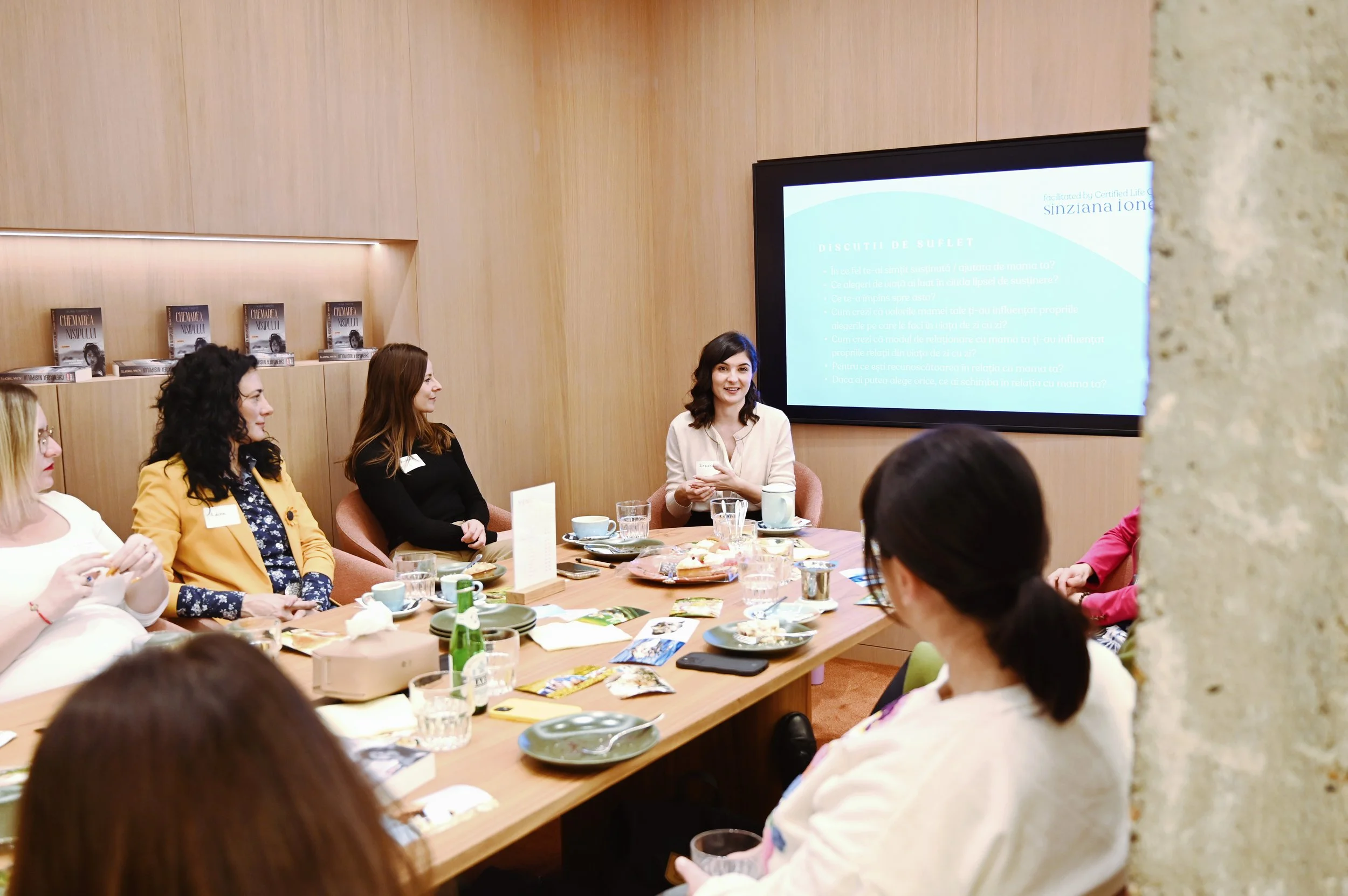Mother-Daughter Bond
Last Sunday, I facilitated one of my most special workshops to date. Ten courageous women joined me in Rotterdam at Women in Conversation to explore the mother-daughter relationship—a theme that has profoundly shaped my own life.
For me, my connection with my mom has been the most impactful relationship. Growing up in post-communist Romania as an only child, my mother made deliberate and thoughtful choices that shaped our bond despite the challenges of her own upbringing.
Some of the key lessons from our relationship include:
Showing love openly: Despite being raised in an authoritarian household (in times when beating was used to gain control over kids), my mom chose to shower me with affection through words, hugs, kisses and warmth.
Balancing warmth and boundaries: She paired her kindness with firm boundaries, creating a sense of safety, clear guidance and a healthy attachment that was rare in Eastern European culture 30 years ago.
Encouraging freedom and independence: My mom trusted my intuition and gave me the freedom to make my own choices. Her support when I decided to study abroad at 16 has stayed with me as a cornerstone of my confidence.
Modeling self-worth and balance: She taught me unconditional love while showing that her life didn’t revolve solely around me. She had her own passions, social life, and career—a lesson of balance I deeply value today.
Why the Mother-Child Bond Matters
The mother-child relationship plays a foundational role in shaping who we become. Here’s why:
Attachment Shapes Emotional Well-Being
Attachment theory tells us that the early bond between a child and their primary caregiver sets the stage for emotional security and future relationships. A secure attachment fosters self-worth and resilience, while disruptions can lead to insecure attachment styles that affect how we connect with others and handle life’s challenges.Emotional Regulation and the Brain
The quality of the mother-child connection influences the development of key brain areas, such as the prefrontal cortex (responsible for decision-making and impulse control) and the limbic system (which processes emotions). Responsive, attuned care helps children learn emotional regulation, while neglect or inconsistency can lead to lifelong struggles with stress and self-management.Impact on Decision-Making
Our early relationship with our mothers often serves as a blueprint for how we approach life. Unconditional support fosters confidence and independence, while conditional support may lead to self-doubt or decisions based on external validation.
An Invitation to Reflect
Take a moment to reflect on your relationship with your mother or mother figure. How has it influenced your view of yourself, your emotional well-being, and the choices you’ve made? Recognizing these patterns is the first step toward embracing or transforming them.
Here are some journaling prompts to help you explore this further:
What are you grateful for in your relationship with your mother?
In what ways did you feel supported by your mother?
How do you think your mother’s values have influenced your daily choices?
How has your relationship with your mother shaped the way you build relationships with others?
If you could change anything in your relationship with your mother, what would it be?



